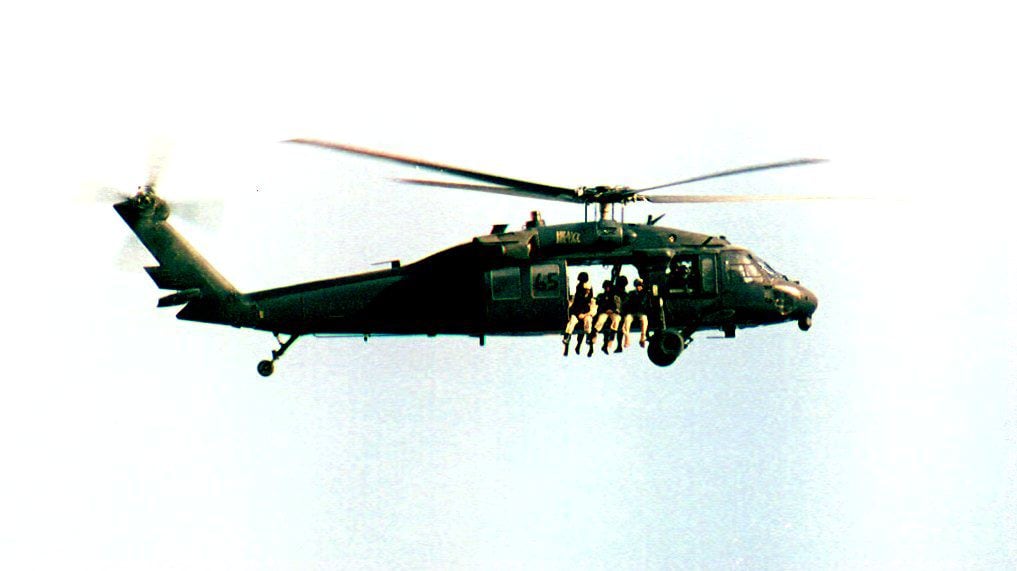The Army has upgraded 60 medals for special operators involved in Operation Gothic Serpent — 58 are being upgraded to Silver Stars and two are being upgraded to the Distinguished Flying Cross.
Gothic Serpent culminated in the 1993 Battle of Mogadishu and cost the lives 19 U.S. service members, with dozens more wounded.
“At this time we are not releasing the names or units as we are still working through the notifications and are able to confirm that the soldiers would like their names to be released to the public,” said Bonita Riddley, a spokesperson for Army Special Operations Command.
The upgraded awards will be presented later this year — the 28th anniversary of the mission — in separate ceremonies, according to a press release. Each service member will be hosted by their former units.
The awards were upgraded following a directive issued in October by former Secretary of the Army Ryan McCarthy to re-evaluate the actions taken during the mission.
In the early 1990s, the U.N. was working to end a civil war in Somalia, which was also racked by severe famine. The U.N. mission escalated after an attack on dozens of Pakistani soldiers.
The Somali National Alliance, led by Mohamed Farrah Aidid, was blamed and the U.N. Security Council authorized the pursuit of Aidid and his lieutenants.
After the SNA attacked U.S. forces twice, leading to four deaths and seven injuries, President Bill Clinton authorized a special task force, code named Task Force Ranger, which consisted of Delta Force, the 75th Ranger Regiment, 160th SOAR pilots, Navy SEALs and the 24th Special Tactics Squadron.
The task force began a manhunt for Aidid and learned that two of his lieutenants were in Mogadishu. As part of their attempts to coerce Aidid into surrender, they set out to capture these sub-leaders.
On the afternoon of Oct. 3, 1993, Task Force Ranger sent 19 aircraft, a dozen land vehicles and hundreds of troops to arrest Aidid’s lieutenants. They were successful, and had loaded the men into the convoy, when local militias began to fire on the soldiers.
They successfully shot down a UH-60 Black Hawk aircraft, Super Six One, killing both pilots, though the crew survived. This is where the common name “Black Hawk Down” originates.
A few hours later, another Black Hawk, Super Six Four, was also shot down. This time, one of the pilots survived. However, he and the other surviving crew members were unable to move from their position.
This led to repeated requests from Master Sgt. Gary Gordon and Sgt. 1st Class Randy Shughart to secure the crash site and recover the survivors. Their request was approved on the third try.
Gordon was killed during the attempt, and after holding off the attackers for a while, Shughart was also killed. The surviving Black Hawk pilot, Michael Durant, was then captured by Aidid’s forces. He was later released.
Both Gordon and Shughart were awarded posthumous Medals of Honor for their actions.
The battle was considered a victory for the Somali National Alliance, and led to a re-evaluation of American foreign policy, as well as the resignation of Secretary of Defense Les Aspin.




